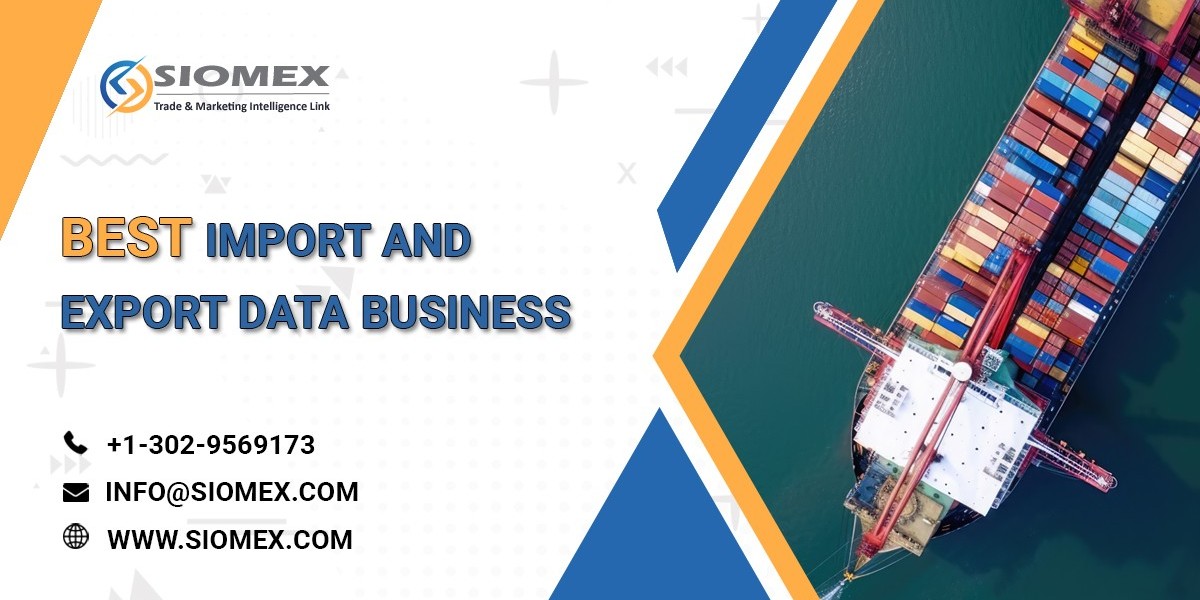What market to target and which products to pitch can be overwhelming making it a bit of a challenging task.
Once you are actually entered into the export field and accepting orders, one of your first huddles will be: “How to find buyers who are real & trustworthy?” After all, when you send your goods abroad it’s not just about selling, but building relationships that are long-term, secure and profitable.
That’s where customs data comes in like a beacon. It’s not just numbers and paperwork it’s a treasure map that exporters mine to find genuine buyers.
In this blog post, we will look at the down-to-earth ways in which exporters do this with customs data. We’ll include examples, add some helpful stories you can relate to and discuss how resources such as Siomex, a reliable import export data provider help out.
Why Identifying Genuine Buyers Matters
You are a farmer in India and your family harvests superior rice. You hear about a foreign company that is interested in doing business with you. Exciting, right? But what if you ship the product and never receive payment? Or even worse, what if the "buyer" disappears after trying your first sample?
And that is the brutal truth many exporters dread. The wrong partnership can squander time, money and trust. So exporters are careful they want to ensure the buyer isn’t just real, but able to pay and consistent in their business.
Customs Data: A Simple Explanation
Customs data can be thought of as the travel diary of goods. Each time a product is transferred from one country to another, it creates a trail the type of good that was moved, how much there was of it, the name of the buyer and seller and where that shipment ended up.
These statistics are reported at ports of entry. For exporters, this information is akin to cracking open a window into the heart of the buyer. Now, rather than just guessing, you can actually see:
● Imports of your type of product by whom
● How often they buy
● In what quantity they buy
● The countries they normally buy from
This is what makes customs data a real-time directory of buyers, but with facts instead of claims.
How Exporters Use Customs Data to Identify Authentic Buyers
Checking Buyer’s Track Record
Example: Suppose you export spices. Customs data might indicate, for example, that a buyer in the UAE has been regularly importing cardamom and turmeric over the last three years. That history gives you confidence that they are real and experienced, not a one-hit wonder.
Matching Product Needs
If you’re selling cotton yarn, for example, use customs data to discover which companies are importing string — not chemicals or machinery. This saves you time and means that you’re only focusing on those who already participate in what your product provides.
Understanding Import Volumes
A purchaser who imports 10 pots of rice monthly is obviously not small scale. Conversely, a buyer with just 1 shipment in the last year may not be ideal for your company’s growth. This discrepancy is clear in the Customs data.
Spotting Consistency
Real customers do not vanish after a single deal. Patterns emerge from customs data—whether a buyer has been importing regularly or sporadically. Consistent activity is an all-clear sign for exporters.
Avoiding Middlemen and Fake Leads
Large numbers of exporters lose money pursuing leads that are just brokers or middlemen. Such noise is cut through by the customs data, which tells a real importer and can help exporters find buyers who actually place orders.
The Human Element of Customs Statistics
Let’s illustrate this point with an anecdote.
Rahul is a minor India exporter of mango pulp. He used to depend solely on trade fairs and word of mouth to get buyers. But often, he would send emails to which he never received a response, or fielded inquiries from people who were not entirely serious.
The first time Rahul dabbled in custom data, he found a food processing company in Saudi Arabia that had been importing mango pulp for five consecutive years. And Rahul smartly replaced taking a shot in the dark by confidence, saying: “I know you import mango pulp on a regular basis and I have it from India of best quality.”
The buyer was impressed; Rahul had done his homework after all. Today, Rahul gives them every season.
This is the power of customs data — it turns exporters from guessing to knowing.
How Siomex Helps Exporters
At the same time, getting your hands on customs data is not simple today. It requires government records, lot of paperwork and digging. That’s where services like Siomex enter the picture.
Siomex is an import export data sharing platform which minimizes the hassles of importing. Rather than having to spend hours searching, Siomex provides instant access to the following for exporters:
● Verified buyer information
● Product-specific trade records
● Country-wise import trends
Contact details of importers
It’s life I’ve made easier for the beginners and old hands alike. For instance, if you trade onions and are interested to know who is importing onions in Malaysia The service can give a list with the names of importers attached. No speculation, no middlemen — just reliable information.
In other words, Siomex is the transformation of data into decisions.
Advantages of Using Custom Data in Discovering Authentic Buyers
● Saves Time: Stop running after false leads.
● Fewer Risks: You trade with the companies that have already made trading offers and are known to credit.
● Better Negotiation: You are already aware of the buying patterns of the buyer, meaning you can pitch intelligently.
● Opens Global Doors: You find buyers in new countries you never would’ve considered.
Long Term relationships : Investments based on data proven partnerships are more trustworthy.
FAQs
What does customs data mean in brief?
Customs data is a report on the flow of goods in and out of a country. It exhibits what was incoming or outgoing, who purchased it, who sold it.
How can export data assist me as an exporter?
It guides you to find reliable importers on the back of their past trade history, what they tend to import and how frequently.
It does seem dangerous to rely on only one source?
Yes, which is why customs data is most meaningful when coupled with background checks, emails and in-person conversations. It cuts down on guesswork, but you still have to proceed carefully building relationships.
Why should I use Siomex?
You don’t have to gather raw data from the source yourself, Siomex can help you with that. It provide credible & verified trade data, thereby creating customers’ confidence.
What about small exporters? Can they use customs data, too?
Absolutely. Whether you are a small farmer, medium-sized manufacturer or big exporter, customs data can help you find the right buyers.
Conclusion
In the world of exports, success isn’t about getting your goods into anyone’s hands it’s about finding customers you can trust.
Customs statistics are like a compass putting exporters in the right direction. As with Siomex, the road is smoother, faster and safer.
That means that the next time you ask how exporters do ithow they find a real buyeradmit that it’s not luck, but rather, data, insight and smart decisions.








